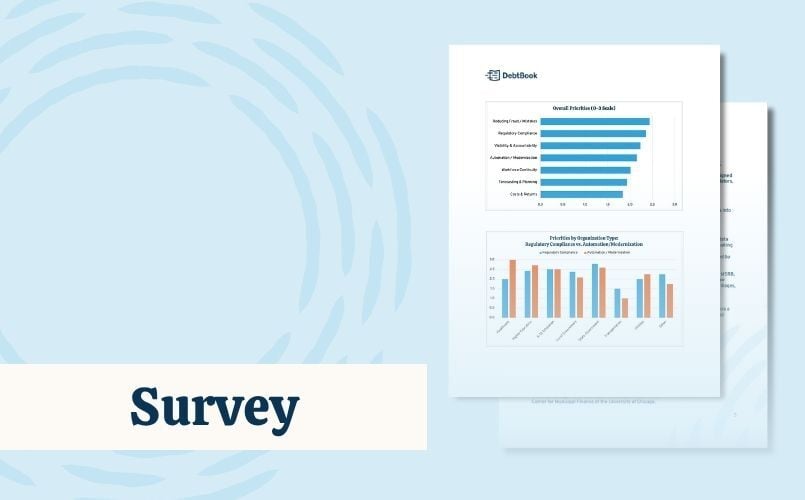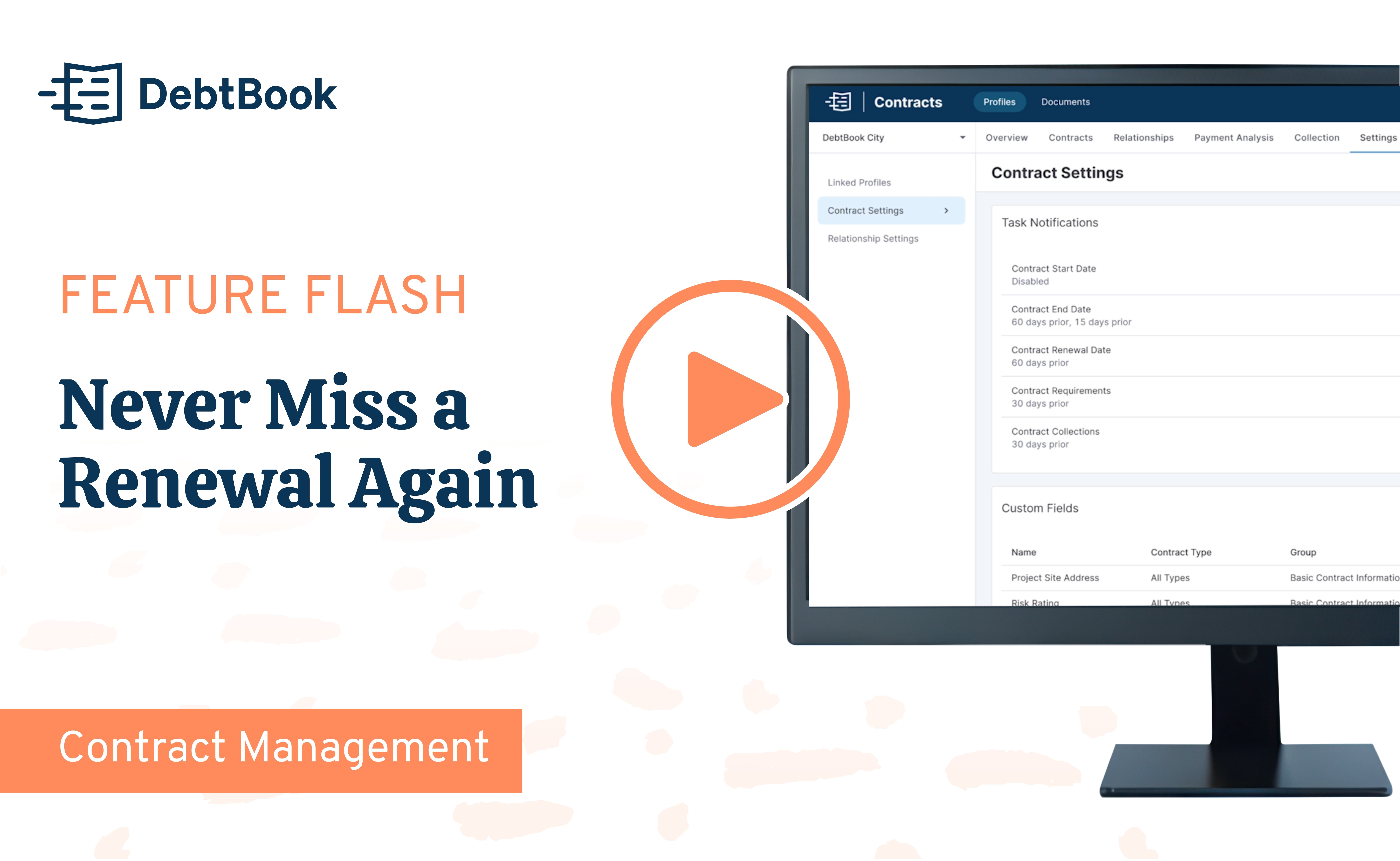Finance teams face a pivotal challenge: the demands on their time, accuracy, and strategic foresight are greater than ever. Data is growing in volume and complexity, regulations are tightening, and leadership is pushing for more strategic insights from their finance departments.
So, how can finance teams rise to meet these demands when their systems are holding them back?
The Problem:
Data is Growing in Complexity and Teams are Shrinking in Bandwidth
Many finance teams are still relying on decentralized, spreadsheet-based systems that create data silos and inefficiencies. These outdated processes slow down decision-making, increase the risk of errors, and leave teams scrambling to keep up with their growing responsibilities.
Hours are wasted manually compiling reports, double-checking formulas, and searching for the most up-to-date files. And since turnover is increasing due to the retirement cliff in public service, institutional knowledge can be lost, further compounding the issue.
The Solution:
Data Centralization Increases Efficiency, Reduces Errors, and Frees Up Time for Strategic Work
By consolidating financial information from across departments into a single, unified platform, finance teams can dramatically increase their efficiency and reduce errors.
Data centralization allows for the automation of critical tasks, such as financial reporting, accounting schedules, payment processing, and portfolio analysis – eliminating the tedious manual work that holds teams back.
This shift doesn’t just solve short-term problems; it future-proofs organizations for long-term success. With greater data visibility, teams can make better financial decisions, reduce risks related to financial disclosures and compliance, and ultimately deliver stronger financial outcomes.
Imagine giving your team 10% of their time back each year—what could they achieve with that extra time?
The possibilities for more impactful work are endless.
Build a Strong Foundation for Strategic Growth with DebtBook
In this industry, you are gathering and using financial data every single day to do your job. However, the dependence on spreadsheet-based systems means anchoring your operations to a fundamentally flawed foundation, setting the stage for inefficiency and error.
“You’re living dangerously when you’re living in multiple spreadsheets and one person tweaks something without notifying someone else.”
-Mike Sylvia, Finance Director and City Treasurer, City of Vista, CA
To enable effective strategic planning, everything starts with the foundation—a centralized data management system, like DebtBook, that consolidates all debt information, both current and historical. This system ensures that crucial data is easily accessible to the entire team, from accounting to treasury.
With all schedules, allocations, documents, and tasks in one place, your finance team has a solid baseline to work from. From there, automation takes over—streamlining accounting tasks, year-end reporting, payment workflows, continuing disclosure, and even new issue structuring.
Think of it like building a house. The foundation needs to be strong and reliable to hold up the rest of the structure. If the data isn’t centralized and your team doesn’t have easy access to it, they’ll revert to outdated methods like spreadsheets. This will diminish the efficiency gains you were aiming for, preventing your team from spending time on more impactful, strategic work.
Solving the Challenges of Decentralized Data in Treasury & Accounting
Finance teams nationally are under pressure:
“Turnover in key roles is creating risk and a loss of internal control.”
“Data silos & Excel systems are reducing productivity and creating significant data and process risks for our organization.”
“Our lack of visibility into our data stops us from making great strategic decisions to improve financial outcomes.”
“We have more reporting requirements than ever, delaying our audit.”
“We’re struggling to recruit and retain the best and brightest.”
Turnover Threatens the Loss of Critical Institutional Knowledge
Finance teams, particularly in government and nonprofit sectors, are facing a critical risk: turnover. When key personnel leave, they often take their knowledge with them. Much of this expertise is undocumented, stored in their heads or buried deep in complex, outdated spreadsheets.
This creates a major challenge for finance leaders:
How do you ensure continuity when the people who know your processes best are no longer around?
Decentralized, manual systems amplify this risk. New hires often struggle to navigate inherited spreadsheets and systems, wasting valuable time trying to learn processes with little documentation.
How DebtBook Solves This
By institutionalizing knowledge within a unified platform, you ensure that your team has ongoing access to critical information. Instead of losing expertise when someone leaves, you create a system that captures and preserves institutional knowledge for the long term.
DebtBook’s modern software solution can even help you retain your employees. For example, we recently spoke with a small county that struggled to fill a key finance position, only to have the new hire leave after a few months.
Why?
Their outdated, spreadsheet-heavy processes made the job unnecessarily difficult.
This situation highlights an important point:
If you want to build a strong, strategic finance team, you need to first automate operational tasks.
The benefits are clear: your organization becomes more resilient, better able to hire new employees, and withstand turnover without losing momentum.
Data Silos Result in Limited Visibility and Poor Collaboration
In a decentralized setup, data is often scattered across various spreadsheets and departments. Treasury and accounting may each operate within their own systems, making it difficult to maintain consistency and accuracy.
When teams are siloed, critical data might be duplicated or inaccurately entered, leading to errors in financial disclosure, planning, and reporting. Worse, it can cause delays in decision-making, as leaders struggle to get a complete picture of their organization’s financial standing.
As a result, you end up with a fragmented view of your financial health, making timely and strategic decision-making nearly impossible.
How DebtBook Solves This
Centralized data management transforms how finance teams work by consolidating all critical financial information into one unified platform. With DebtBook, teams can break free from inefficient data silos, gaining real-time access to accurate data across all departments. This increased visibility saves time, improves accuracy, and ensures that everyone—CPA firms, financial advisors, etc.—has access to the same up-to-date information.
This enhanced visibility allows teams to spend less time searching for information or verifying figures, enabling faster decision-making with confidence in the accuracy of the data.
Manual Processes have the Potential for Errors and Compliance Risks
Every time your team manually enters data or updates a spreadsheet, they’re putting themselves at risk of making an error. And in finance, small errors can have significant consequences – missed payments, violations of debt covenants, or even failures to comply with IRS tax regulations.
These risks extend beyond financial missteps. Non-compliance can lead to reputational damage, financial penalties, or lost funding opportunities.
When your team is spending more time manually processing payments and updating accounting entries, they’re not focusing on the higher-value work that drives strategic outcomes.
How DebtBook Solves This
DebtBook transforms how finance teams operate by significantly boosting productivity across key areas.
One of the most immediate benefits is the automation of labor-intensive processes such as financial reporting, accounting schedules, entries, and payment processing. Tasks that once required manual input and verification can now be completed with just a few clicks.
"Before DebtBook, I had to spend precious time navigating a cumbersome Excel spreadsheet, verifying maturity dates, and checking statement balances. Now, we don't have to do that. We trust DebtBook's information, so there's no need for repeated verification. We click on a link and have all of the information in one place. It cuts down on previous time spent searching for everything to put a report together."
-Ghazala Bibi, University Controller, The University of North Carolina at Greensboro
When your team no longer needs to manually compile reports, process payments, or manage accounting schedules, they can dedicate more time to tasks that drive real value, such as financial planning and analysis.
The automation of key workflows eliminates many of the risks associated with poor financial disclosure, covenant violations, and IRS tax compliance issues. By ensuring that reports, disclosures, and payments are accurate and timely, finance teams can avoid costly penalties and reputational damage.
Explore the Financial & Strategic Benefits of Centralized Data
If your team has $500 million in outstanding debt and you’re able to reduce the term by just one year for every $100 million, that could result in $3.2 million in savings.
While these numbers aren’t guaranteed, they illustrate the significant financial gains possible with even minor adjustments.
Cost Reduction
For the money invested in DebtBook, organizations could save hundreds of thousands—even millions—over time.
With more time to focus on strategic decision-making, your team will be better equipped to make choices that can lead to substantial savings—ranging from hundreds of thousands to even millions of dollars. And the investment required for such a transformation is modest by comparison.
By consolidating your systems, eliminating unnecessary software, and increasing productivity, you’re positioned to enhance your financial outcomes. You’ll be able to improve investment earnings, cut down on operational costs, and optimize your overall financial performance.
Improved Financial Planning & Analysis
When the right information is available at the right time, decisions are smarter, faster, and more informed, leading to better results across the board.
One of the most impactful benefits of centralized data is the ability to gain real-time visibility into your financial position. With all debt, cash flow, and treasury data in one system, finance teams can make more informed decisions, leading to better financing strategies and more accurate forecasting.
Centralized data management reduces errors in debt structuring and financial reporting, which can prevent significant financial losses. Even small improvements can translate into millions in savings, giving your organization greater flexibility.
By freeing up time for strategic analysis, your team can focus on high-value work and spot opportunities that might otherwise be missed. For example, identifying and wisely investing idle cash could generate substantial additional revenue.
“We’ve had an 80% productivity gain in data management with DebtBook.”
- Mitali Shah, CPA, Debt Manager, City of Charlotte
The same applies to cash management. By reallocating time from operational debt tasks to focus on cash and investments, your team could uncover opportunities to save or generate revenue.
For every $10 million in idle cash identified and invested at a 5% rate, you’d earn $500,000. Improving your investment return by just 10 basis points on $50 million of cash could mean an additional $50,000 in earnings. Again, while the exact numbers may vary, this highlights the tremendous value in freeing up time for strategic analysis.
Invest in Your Future with DebtBook
DebtBook was created in response to the frustration with outdated tools like Excel and cumbersome, inefficient software.
Centralizing data isn’t just a quick fix for reducing risk and boosting efficiency—it’s a long-term strategy to future-proof your organization. As turnover, regulatory pressures, and the demand for strategic decision-making continue to rise, finance teams need systems that not only streamline operations today but also prepare them for the challenges of tomorrow.
DebtBook empowers teams to preserve institutional knowledge, adapt swiftly to changing priorities, and make informed financial decisions that drive long-term success.
Our solution delivers value to both treasury and accounting departments.
Treasury: We enhance operational efficiency and give your treasury team greater visibility, allowing them to focus on higher-value tasks and achieve better financial outcomes.
Accounting: Our platform automates labor-intensive financial reporting processes, speeding up audits and freeing up time for more strategic work.
The choice is clear: investing in DebtBook is a commitment to unlocking productivity, reducing risks, and elevating financial performance across your organization.
Now is the time to invest in a solution that transforms your operations and sets your organization up for lasting success.
Related Treasury Management Reading
- Breaking Through Data Silos: How to Enhance Treasury Efficiency
- Understanding Bank Fee Analysis for Municipalities
- 6 Short-Term Financing Strategies for Treasurers
Disclaimer: DebtBook does not provide professional services or advice. DebtBook has prepared these materials for general informational and educational purposes, which means we have not tailored the information to your specific circumstances. Please consult your professional advisors before taking action based on any information in these materials. Any use of this information is solely at your own risk.


.jpg)



.jpg)
